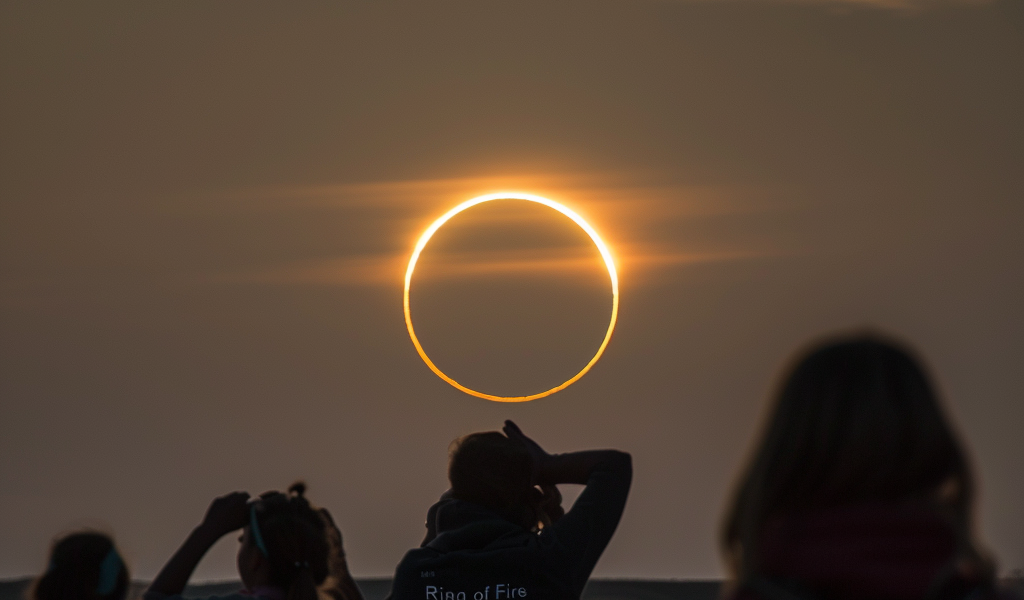The much-anticipated ‘Ring of Fire’ solar eclipse is set to take place on October 2, 2024, captivating skywatchers with its stunning visual display. This astronomical event, also known as an annular solar eclipse, will unfold over a span of six hours, beginning at 9:13 PM IST and concluding at 3:17 PM IST the following day.
During this phenomenon, the Moon will align directly in front of the Sun. However, due to its distance from Earth at that moment, it will appear smaller than the Sun, creating a spectacular ring of sunlight that will encircle the darkened center. This unique occurrence will be visible to observers located within the path of annularity, which includes regions across the Pacific Ocean, southern Chile, and southern Argentina.
For those in India, unfortunately, this celestial event will not be visible. The timing of the eclipse coincides with nighttime in the region, meaning that Indian skywatchers will miss out on this extraordinary sight. Consequently, traditional practices such as Sutak Kaal, a period of observation associated with eclipses, will not be relevant for this event in India.
As the eclipse approaches, astronomy enthusiasts and casual observers alike are encouraged to prepare for this captivating astronomical event. It’s essential to remember that viewing a solar eclipse requires proper safety precautions to protect the eyes from harmful solar rays.
The ‘Ring of Fire’ solar eclipse is a remarkable phenomenon that occurs when the Moon passes directly in front of the Sun but does not completely cover it. This results in the bright ring of sunlight that gives the event its name. The Moon’s elliptical orbit means that it is sometimes closer to the Earth (at perigee) and sometimes farther away (at apogee), which affects its apparent size in the sky.
Solar eclipses, in general, happen when the Sun, Moon, and Earth align perfectly, either fully or partially. This alignment casts a shadow on Earth, blocking the Sun’s light in certain areas. Solar eclipses are relatively rare occurrences, as the Moon’s orbit does not always align perfectly with the Sun and Earth.
As the date of the ‘Ring of Fire’ solar eclipse approaches, many are eagerly awaiting the chance to witness this celestial spectacle. For those fortunate enough to be in the right location, it promises to be an unforgettable experience, showcasing the beauty and wonder of our solar system.
In preparation for the event, enthusiasts are advised to follow updates from reliable astronomical sources and consider using solar viewing glasses or other safe methods for viewing the eclipse. Engaging with local astronomy clubs or online communities can also enhance the experience, providing opportunities for shared observation and discussion about this fascinating phenomenon.
As we count down to October 2, 2024, the excitement around the ‘Ring of Fire’ solar eclipse continues to grow. Whether you’re a seasoned astronomer or simply curious about the cosmos, this event is sure to inspire awe and wonder at the incredible workings of our universe.





